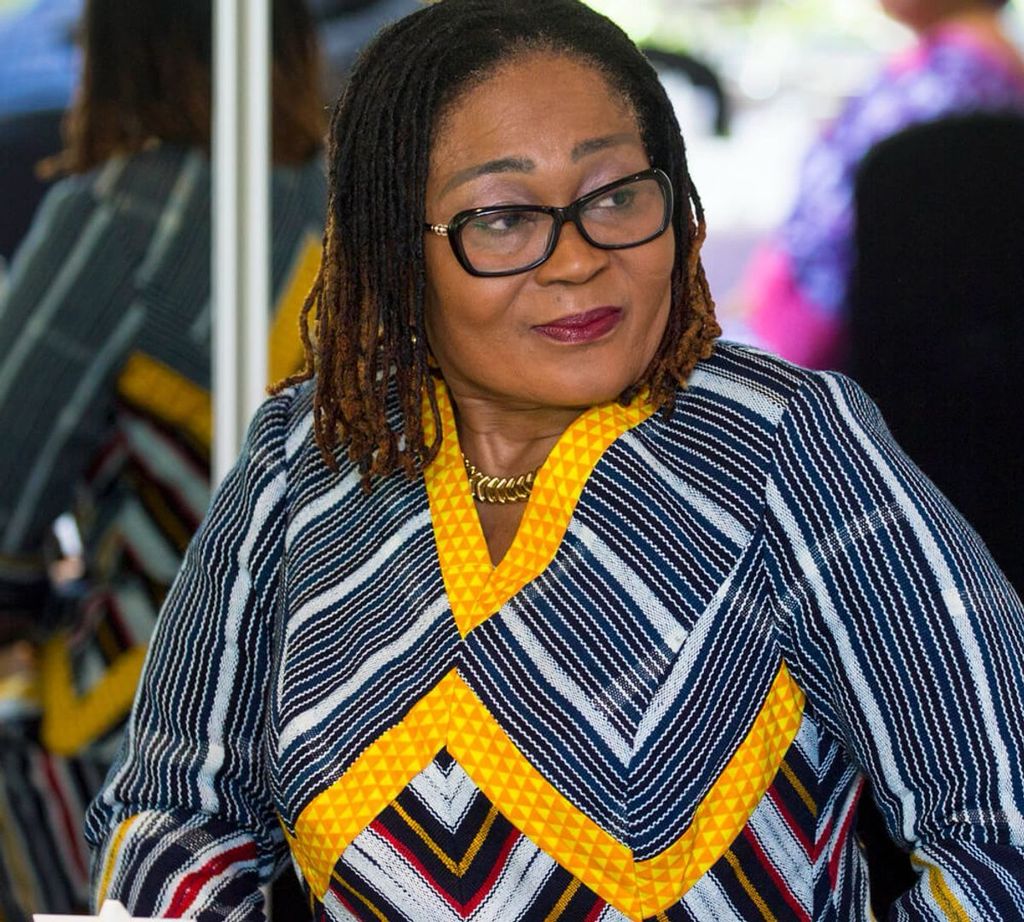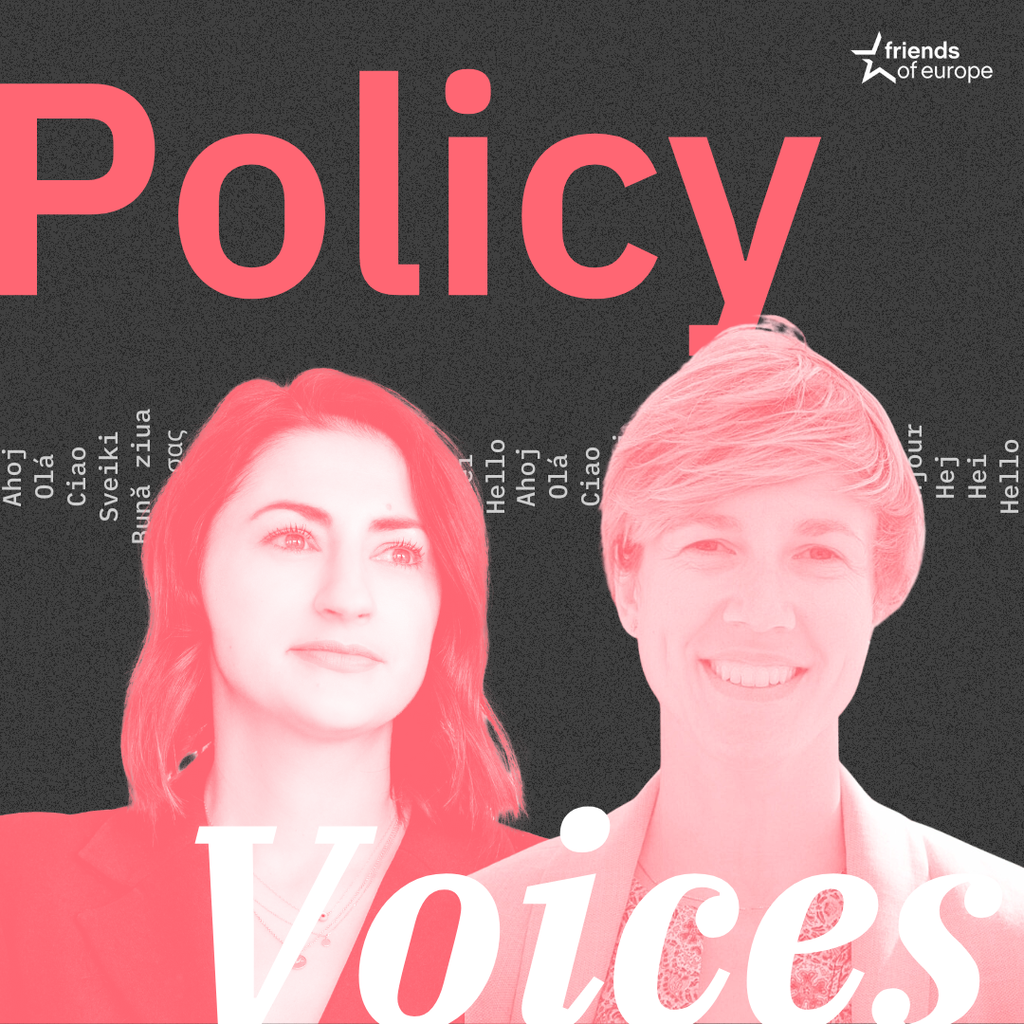A bold vision for a climate-neutral and competitive Europe
Next event In person & livestreamed

- Area of Expertise
- Climate, Energy & Natural Resources
Climate, Energy & Natural Resources

Former first lady of Ghana and President of the Lordina Foundation
My home country of Ghana is one of the world’s most climate-vulnerable countries. Although among the smallest contributors to greenhouse gas emissions, I’ve witnessed the dangerous impacts of climate disasters firsthand. Intolerable heatwaves, droughts, volatile rainfall patterns and floods are daily realities.
Ghana is making massive economic losses of around $95mn a year due to climate-linked droughts. By 2050, this will become $325mn. Agriculture accounts for 21% of the GDP. Yet climate change is ravaging small, rain-fed farms. When Ghanaians look to the future, we see mounting climate destruction.
This is the story across Africa and the developing world. The only way to avoid it is through richer, high-polluting nations delivering at least $1.8tn a year to poorer nations by 2030.
Ghanaians know firsthand that the World Bank-IMF system is broken. Ghana was once highlighted by the bank as a model example of ‘structural adjustment’, but the recent massive debt-default crisis required Ghanaian President Nana Akufo-Addo to return to the IMF to engage in further loan packages.
It’s a familiar pattern across 81 developing countries: lending fuels debt, solved by lending, which fuels more debt. The result is not a strong, independent economy but a deepening cycle of debt-induced poverty.
Africa is disproportionately affected, with temperatures expected to rise faster than the global average
The US proposal seemed at loggerheads with what COP28 President Dr Sultan Al Jaber had proposed: total reform of the international financial architecture to ensure poorer countries’ access to low-cost finance – which reduces, not amplifies, debt burdens. The United Arab Emirates’ COP28 presidency broke through this impasse during emergency talks in Abu Dhabi after negotiations were on the brink of collapse.
Although the draft deal allowed the World Bank to temporarily administer the fund over an interim period, it also insisted that developing countries retain oversight by sitting on its board. There can be no doubt that this is a landmark breakthrough. It means that for the first time, there is a serious prospect of getting funds to the most climate-vulnerable countries.
Yet, the agreement is not a done deal. It will now need to be signed off by some 200 world governments at the COP28 summit. The danger is that the loss and damage deal narrowly pushed through will be undermined by the intransigence of richer, industrialised countries.
A further challenge is that loss and damage is only a tiny proportion of the global trillion-dollar climate finance challenge. Without a robust global climate financing deal at COP28, the world’s most vulnerable populations, especially the orphans and vulnerable individuals of the Global South, face a perilous future.
Africa is disproportionately affected, with temperatures expected to rise faster than the global average, leading to increased droughts and water scarcity, rising sea levels and erratic rainfall. These are undermining agricultural productivity and food security, driving widespread displacement, pushing communities into poverty, while leaving orphans and vulnerable children malnourished and without access to education.
Industrialised nations – historically significant contributors to climate change – must lead the charge in emission reductions and support Africa’s clean energy transition
The IMF’s own data warns that due to climate change, conflict-deaths in fragile states – four out of five of which are in Africa – will increase by 10% by 2060. And a further 50mn will be pushed into hunger. It’s not just Africa. One billion people around the world inhabit climate-vulnerable fragile states: this would be the largest, longest humanitarian catastrophe the world has ever seen.
If governments fail to catalyse tangible solutions at COP28, they will knowingly condemn millions of Africans and people of colour to this future. The world’s most polluting nations owe it to the rest of us to avert this devastating possibility.
The good news is that thanks to the convening power of the COP28 presidency, a global deal is within reach. Already, African nations, EU governments and the United States have endorsed the goal of tripling renewable energy by 2030. But further key issues must be addressed.
We need conversations around funding projects that transform water from a destructive force to a productive one, for example, channelling water from the overflowing Volta River in Ghana to arid areas for agriculture. We cannot stop at the most obvious initiatives around climate-resilient agricultural practices and renewable energy initiatives.
We must also prioritise education and healthcare for climate-affected orphans across Africa. Data from the Internal Displacement Monitoring Centre underscores the urgency, revealing that climate-related disasters in Africa have already resulted in the internal displacement of nearly 20mn people, disrupting lives and exacerbating vulnerabilities.
Global cooperation is a moral obligation. Industrialised nations – historically significant contributors to climate change – must lead the charge in emission reductions and support Africa’s clean energy transition. Additionally, they must actively share knowledge and technology, fostering a collaborative spirit that transcends borders and ideologies.
The orphans and vulnerable people of Africa are not mere statistics; they are fellow human beings deserving of dignity, opportunity and hope. The COP gatherings symbolise our collective opportunity to stand up for justice and solidarity, ensuring a sustainable and equitable future for all, especially those who need it the most.
This article is part of our #COPerspectives series, find out more here. The views expressed in this #CriticalThinking article reflect those of the author(s) and not of Friends of Europe.
Next event In person & livestreamed

Past event In person & livestreamed

Past event In person & livestreamed

Past event In person & Livestreamed





Stay informed
We use cookies and similar technologies to adjust your preferences, analyze traffic and measure the effectiveness of our campaigns. Learn more about our privacy policy.